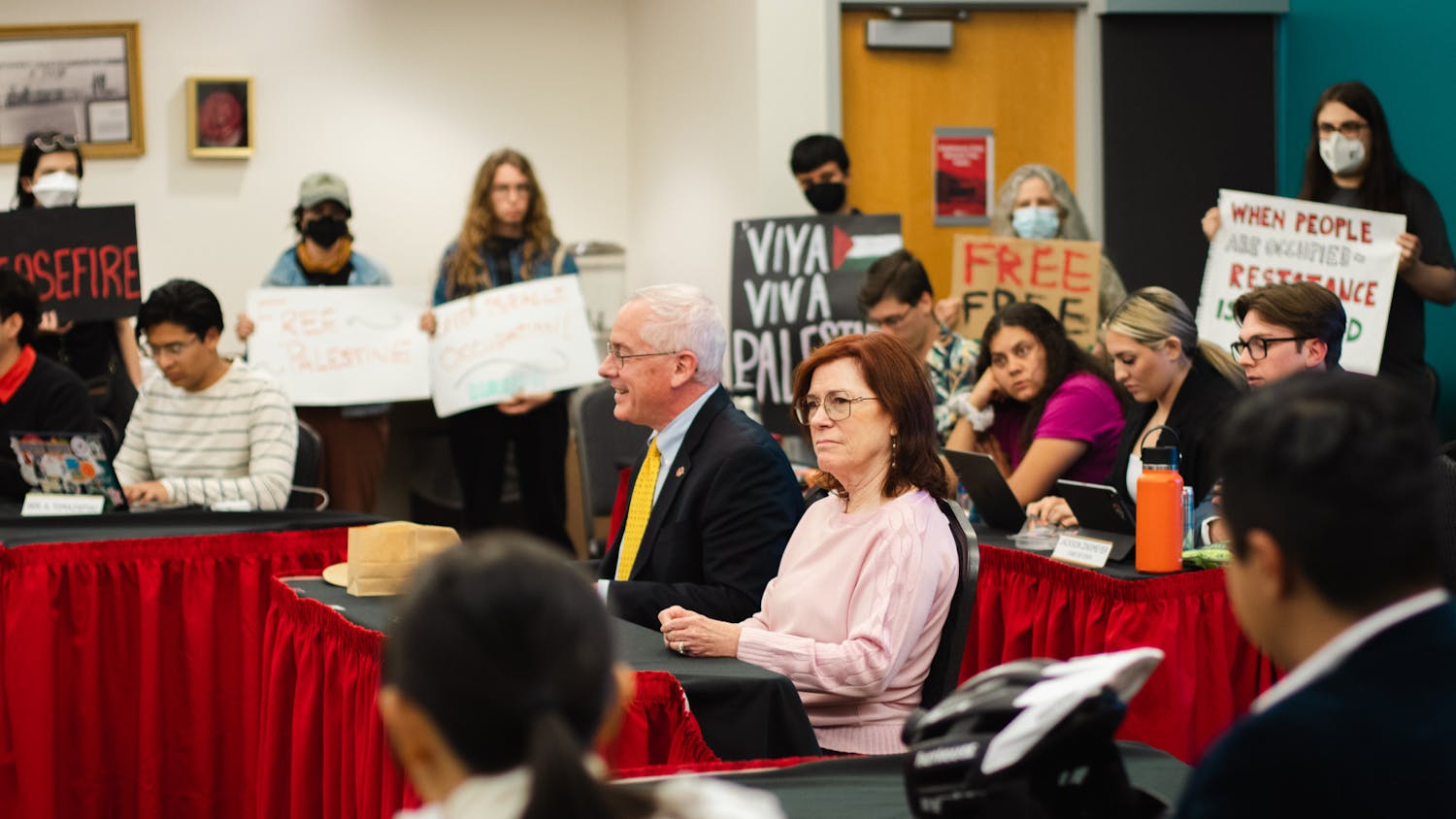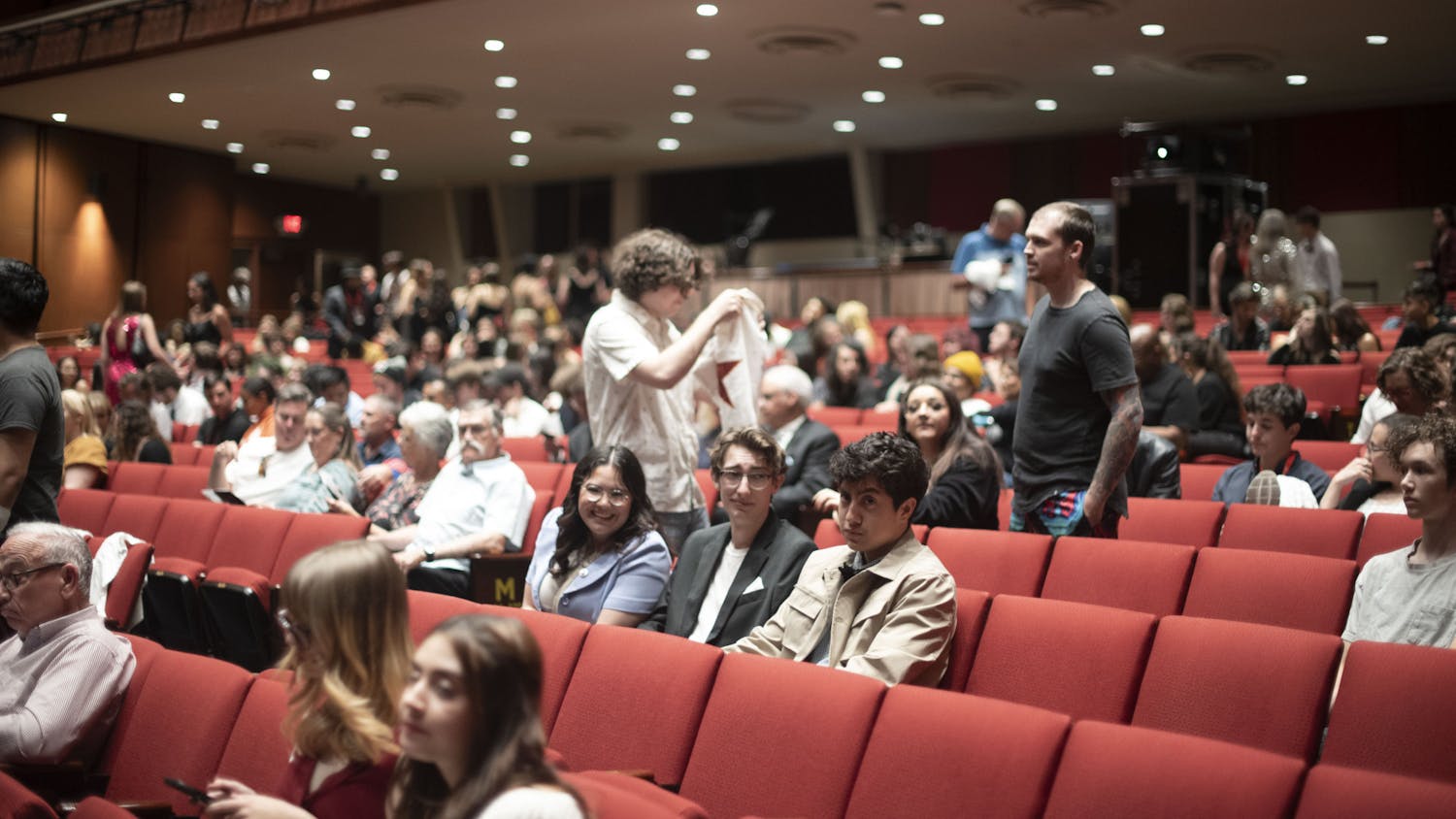news@dailylobo.com
@ArdeeTheJourno
Five weeks ago, Anny Chung laid two species of grass in the soil of the Sevilleta National Wildlife Refuge.
She was setting up an experiment concerning germination rates of grass in arid ecosystems as part of UNM’s Long Term Ecological Research (LTER) Network. The grasses were the two most dominant species of grass in the government-owned wildlife refuge. At first, the experiment went well.
“Right after the fall of rain, they germinated,” she said. “I was able to get two samples of data points.”
Then the government shut down.
Chung, a graduate student in biology at UNM, was not caught off-guard the political halt. Emails had been circulating around the inboxes of LTER’s staff the week before the shutdown, she said.
So that day, after foreseeing the reality of the situation, Chung was forced to obtain as much data as she could.
“The shutdown happened midnight Monday,” she said. “I was there the day of shutdown at 5 a.m. I was out there Monday until, you know, when I had to come back. I was out there just trying to get as much data as I could … Since then, I don’t know if they germinated more or they died.”
UNM’s LTER facility at Sevilleta closed after the United States federal government shut down 15 days ago on Oct. 1.
The deadlock began when the House of Representatives, in which the Republican party holds a majority, proposed a budget for Fiscal Year 2014 without funding for the Affordable Care Act. Offended, the Senate, controlled by Democrats, refused to pass the proposed budget.
An agreement was not reached by the set deadline of 11:59 p.m. on September 30. Without a budget for the coming fiscal year, the federal government was forced to cease providing certain services, have certain federal workers work without pay, furlough other federal workers and federal contractors and suspend operations in federally-owned properties across the country.
Scott Collins, principal investigator for LTER, said their research had to be suspended because Sevilleta is owned by the U.S. Fish and Wildlife Service, which ceased operations because of the shutdown.
Get content from The Daily Lobo delivered to your inbox
Collins said the federal department’s decision to halt LTER “has not been thought out.”
“We are being forced to not meet our obligation because of a bureaucratic decision,” he said. “I’m not happy. It’s very frustrating. They’re not gaining anything by kicking us out of the refuge. Nobody gains from that. But we lose.”
‘Data less useful’
Unlike Chung, her fellow graduate student researcher Laura Ladwig did not find out about LTER’s closure until the day of the shutdown.
“I was about to go there to collect soil samples and see how the different plants out there shape the soil,” Ladwig said. “I was actually planning to go there Monday, the first day of the shutdown. Now, I’ve just been sitting and waiting. I have my stuff ready and my equipment. We just couldn’t go there because of the shutdown.”
October is a critical month for data collection in Sevilleta, Ladwig said. She said researchers involved in LTER usually collect data in the spring after winter snow melts and in the fall after monsoon season. Researchers collect data at the same time yearly, she said.
Except this year.
Collins said the LTER team has been collecting data in the refuge since 1989 for its research focused on arid land ecosystems. He said that this year, even if the government shutdown concludes soon, it might already be too late for the team.
“Having a long-term record that is comparable year to year is very important,” he said. “Let’s say the government opens on Wednesday. We get our crews there Thursday and Friday, and they start gathering data. What can we infer from data that’s collected four to six weeks later this year than all the other years?
Scientifically, it makes the data less useful.”
This degrades the quality of his team’s work, Collins said.
Chung said last month’s data gathering process was also a missed opportunity because this year contains New Mexico’s third wettest September on record.
Ladwig said the lack of rain in Sevilleta since the beginning of October might already have altered the data they would have gathered earlier.
“I don’t think it has rained in the last two and a half weeks there,” she said. “It’s hard to say what the plants look like right now since no one has been out there. Hopefully, they’re still green and active, but if they’re dying or on their way out, it’s going to affect us.”
‘Kicked out’
One road remains open in Sevilleta. Around it are buildings owned by UNM. Security officers limit researchers’ access to the refuge to University-owned buildings and facilities.
At the moment, only 10 acres of the total 220,000-acre expanse of Sevilleta are open to the team, LTER researcher Matt Petrie said.
Despite limited access to the buildings, Collins said the LTER team still left UNM-owned research equipment — including rain shelters, sensors and computers — on research grounds. And researchers can not access them now.
“We’re basically kicked out of there,” Collins said. “For all of the infrastructure that’s out there, which collectively costs probably $200,000 and belongs to UNM, we cannot get to that property.”
UNM tried to reason with the FWS, Collins said. He said he was hopeful to take back access to research grounds because the FWS has already allowed hunters back into Sevilleta.
But he said the University never got a call back from the department.
“They had a small number of exceptions,” he said. “They refused to discuss with us the fact that we actually meet some of those exceptions. We have been unable to even communicate with people in the Albuquerque office.”
The LTER team receives $980,000 from the National Science Foundation every year to fund its research, Collins said. He said the team also receives about $230,000 from UNM yearly to fund the salaries of its 15 team members, mostly from UNM’s biology department.
Petrie said LTER helps determine the effects of the years-long statewide drought, so their research ultimately yields benefits for everybody, he said.
“It’s critical that we have good data because we need to find out if this ecosystem that we have at Sevilleta can bounce back from years of drought,” he said. “There’s a lot of concern about grasslands in the western U.S. becoming deserts. Sevilleta is a desert now. It will be a big change — potentially, a very costly change. We need to find out exactly what makes that happen.”
‘Time constraints’
Ladwig, who is planning to earn her doctorate in biology next year, said LTER’s sudden halt happened at the worst possible time.
“This is the last field season of my Ph.D. research,” she said. “The previous three seasons have pretty much been drought years. So this is the first year that I would get to see — hopefully get to see — a lot of plant production, assuming I can get in.”
Collins said the research’s hiatus will hurt students more than it will faculty members.
“Students are hurting the most because they’re on a limited time frame,” he said. “The rest of us, we’re here and we’ll be here next year, but the graduate students are the ones under time constraints.”
But he said it will not negatively affect UNM’s overall reputation in the long run.
At the moment, the LTER team is as uncertain as anyone about when the government shutdown will end, Collins said.
“I didn’t even think it was going to happen,” he said. “I’m not a good person to predict what’s going to happen in the future.”
The researchers can only hope for the best, he said.






